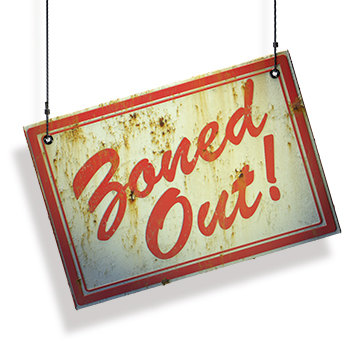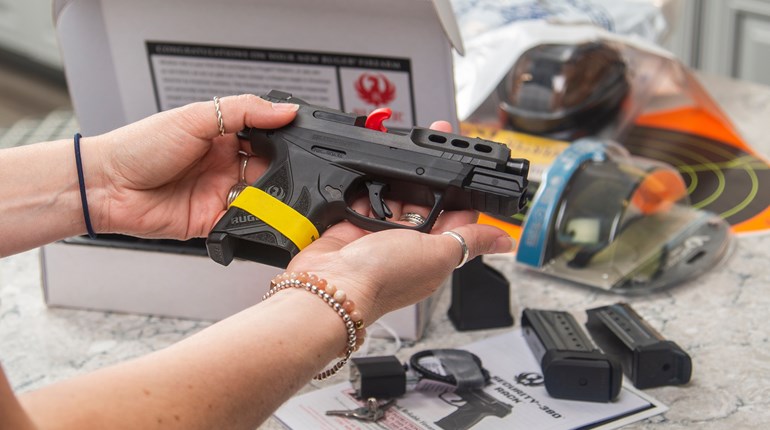
Being “zoned out” has taken on a new meaning when it comes to the Second Amendment. Now the term refers to how municipalities are trying to set up an array of hurdles—mostly in the guise of zoning restrictions—to keep gun stores out of their fair cities.
As the gun-control crowd has grown frustrated with failed attempts to quash gun rights on a national level, pockets of anti-gun resistance are taking hold in communities across the nation.
The attack on gun rights is nothing new. In the past few decades, we’ve seen the federal government try to limit the types of guns we could buy with a ban on so-called “assault weapons.” We’ve watched the naysayers try to tell us what kind of ammunition we could buy. We’ve seen Michael Bloomberg and others push their way into corporate boardrooms to persuade retailers like Wal-Mart Stores and Dick’s Sporting Goods to arbitrarily determine that 18- to 20-year olds aren’t responsible enough to own firearms even though those same young men and women can carry arms in war—and possibly give their lives fighting for us.
Now municipal jurisdictions are finding ways to infringe on our liberty—mostly by using zoning laws or allowing nuisance lawsuits. The tactics make life so miserable for the owners of gun stores and gun ranges that many are moving or going out of business. You’ve heard of gun-free zones; well, consider this a gun-store-free-zone movement.
 The zoning-them-out-of-business strategy sometimes involves invoking the words “gun sales” in the same breath as “sex shops.” Yes, you read that right. Whereas gun stores traditionally have been categorized as sporting-goods retailers—a logical grouping when you consider that competitive shooting is considered as much a sport as football and baseball—a zoning board in Ypsilanti, Mich., in March ruled that gun stores must abide by the same stipulations as other adult-regulated places of business. That means far more restrictions on where gun stores can set up shop.
The zoning-them-out-of-business strategy sometimes involves invoking the words “gun sales” in the same breath as “sex shops.” Yes, you read that right. Whereas gun stores traditionally have been categorized as sporting-goods retailers—a logical grouping when you consider that competitive shooting is considered as much a sport as football and baseball—a zoning board in Ypsilanti, Mich., in March ruled that gun stores must abide by the same stipulations as other adult-regulated places of business. That means far more restrictions on where gun stores can set up shop.
Such a simple change sadly has allowed those who are opposed to our freedom to accomplish their objective in states where such zoning changes have gone unchecked—some cities have even effectively driven gun stores out. Piscataway, N.J., is one such place. The suburb of New York City has no licensed gun dealers, and the town council passed a resolution in June 2018 that is meant to keep things that way. These council members created so many no-go criteria that the resolution exempts nearly every location within the town’s limits from housing a gun retailer.
Piscataway based its resolution on one that has so far held up to legal scrutiny on the other side of the nation. California—not a friendly state for law-abiding gun owners—is likely the leader when it comes to the number of municipalities with zoning restrictions that have further whittled down the number of available parcels for an outlet that wants to sell firearms. Although jurisdictions had been implementing such restrictions for years, the policy was finally challenged in the 9th Circuit Court of Appeals (COA) in 2016. In that case, Teixeira v. County of Alameda, a three-judge COA panel ruled that the Second Amendment right to keep and bear arms extends to the right to purchase and sell firearms. But the battle was far from over. Because gun control is such a hot-button issue in California, Teixeira went before the full Circuit Court, which in turn reversed the panel’s ruling.
With the 9th Circuit’s blessing coming late last year, it should come as little surprise that Windsor, Calif., in May became the latest Golden State municipality to devise a slew of hurdles regarding where a gun store can operate. The Windsor Planning Commission’s action this spring ended a year-long moratorium on granting applications for firearm sales. The law now requires any prospective owner of a gun store to apply for a sensitive-use permit, and it includes so many buffer restrictions that more than a third of city space has been wiped off the board when it comes to where a gun retailer can open. When you then realize that much of the space that falls within the parameters is already occupied, you realize just how remote the chances are of a gun outlet opening.
This latest political ploy isn’t restricted to gun shops. It is also one of the strategies being used to make life difficult for those who run gun ranges. In some cases, even long-established places of businesses find themselves having to deal with this onslaught of hostility toward their enterprise.
Consider a couple of situations in the Keystone State. In one, William Drummond owns property in western Pennsylvania that has long been home to what is now known as the Greater Pittsburgh Gun Club, though the club has had different names since its founding in 1967. Robinson Township has tried several times to make life miserable for those who have run the business over the years. After two failed lawsuits in 1993 and 2016, the township passed zoning restrictions that were cited as the reason for starting a fresh round of litigation in 2017. The tactic worked. In recent months the court ruled in favor of the township. The suit is being appealed to the U.S. Circuit Court of Appeals, though at press time no date for arguments had been set.
To that township’s east, Middletown Township supervisors are backpedalling with respect to a variance allowing a struggling strip mall to house an indoor gun range. A nearby newspaper reports that the supervisors are appealing the zoning board’s decision to allow the store’s owners to use quality soundproofing techniques, thus minimizing the noise.
With the 9th Circuit’s blessing coming late last year, it should come as little surprise that Windsor, Calif., in May became the latest Golden State municipality to devise a slew of hurdles regarding where a gun store can operate.
If the zoning approach weren’t bad enough, another way some are pushing anti-gun-rights restrictions is by allowing nuisance lawsuits against firearm-related businesses. The people who run the Peacemaker National Training Center, a 17-range complex in rural West Virginia that caters to competitive shooters and gun training of all types, have had to spend long hours and a lot of money fighting a frivolous suit in recent years. When it opened in 2011, founder Cole McCulloch made sure his business was in compliance with local ordinances. Still, about six years into his venture, people across the state line in Virginia decided to file suit complaining about the noise.
In Peacemaker’s case, State Sen. Charles Trump IV, a legislative representative who appreciates West Virginia’s heritage of hunting and the shooting sports, has been helping. While the lawsuit was chugging through the court system in 2017, Trump crafted a bill that was designed to protect established businesses from such litigation in the future.
“It just seems like such nuisance lawsuits affect lots of activities—economic and non-economic,” Trump said. “So we started doing some legal research and we found out that if (Peacemaker) had been in Virginia, the plaintiffs would not have been able to sue because Virginia had a law protecting against it. So we modeled (Senate Bill 575 in 2017) after existing legislation in other states to help protect ranges.”
He is critical of today’s disturbing trend across the nation, wherein municipalities show complete disregard for legal guidelines that take precedence—whether it be at the state or federal level. With that, he advises gun owners to remain vigilant and stand firm as various entities try to encroach on our right to exercise our Second Amendment freedoms.
That it has come to this is disheartening for those who cherish the strong tradition of firearm ownership in this country.
“I don’t think gun control is the answer,” Trump said, “though it seems like there are lots more occasions today where governments at all levels are encroaching on our rights. So we’ve got to be more vigilant and aware of what’s happening.”
One concern, of course, is losing a basic freedom that dates to this country’s founding. But Trump wonders, if one part of the Bill of Rights is cast aside as unimportant, isn’t it likely that other rights we cherish will fall?
“I get it,” he said, of the anti-gunners’ knee-jerk reaction to call for gun control in the wake of every tragedy, “we feel the grief and the anguish after something and it’s human nature to want to look for a solution. But taking away rights from a broad swath of people is not the answer.”
The uptick in efforts to sideline businesses that play an ancillary role in allowing the exercise of our Second Amendment rights is important for law-abiding gun owners to acknowledge. Not only does it provide anecdotal evidence that local governing boards think nothing of disregarding legal precedent or discouraging free enterprise when it comes to guns, but it also underscores the notion that local elections might well be more important than national ones when it comes to maintaining our freedoms. So not only do gun-rights supporters need to vote in national elections, but it’s also incumbent upon them to scrutinize candidates for municipal boards and councils and understand that those entities carry increasing influence when it comes to infringing upon our rights.

































